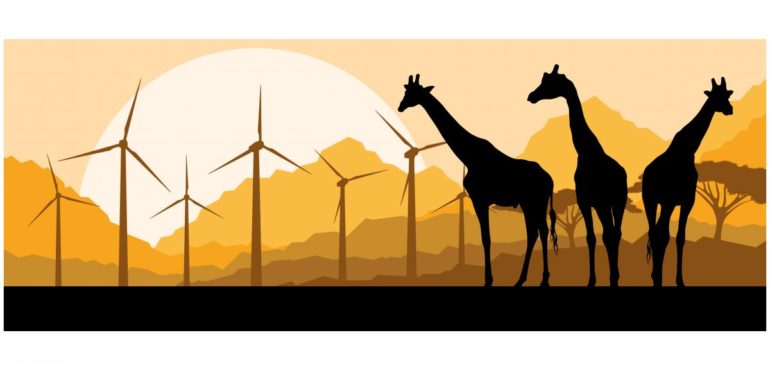New research today from the University of Oxford predicts that total electricity generation across the African continent will double by 2030, with fossil fuels continuing to dominate the energy mix—posing potential risk to global climate change commitments.
The study, published in Nature Energy, uses a state-of-the art machine-learning technique to analyze the pipeline of over 2,500 currently planned power plants and their chances of being successfully commissioned. It shows that the share of non-hydro renewables in African electricity generation is likely to remain below 10% in 2030, although this varies by region.
“Africa’s electricity demand is set to increase significantly as the continent strives to industrialize and improve the wellbeing of its people, which offers an opportunity to power this economic development through renewables,” says Galina Alova, study lead author and researcher at the Oxford Smith School of Enterprise and the Environment.
“There is a prominent narrative in the energy planning community that the continent will be able to take advantage of its vast renewable energy resources and rapidly decreasing clean technology prices to leapfrog to renewables by 2030—but our analysis shows that overall it is not currently positioned to do so.”
The study predicts that in 2030, fossil fuels will account for two-thirds of all generated electricity across Africa. While an additional 18% of generation is set to come from hydro-energy projects, these have their own challenges, such as being vulnerable to an increasing number of droughts caused by climate change.
The research also highlights regional differences in the pace of the transition to renewables, with Southern Africa leading the way. South Africa alone is forecast to add almost 40% of Africa’s total predicted new solar capacity by 2030.
“Namibia is committed to generate 70% of its electricity needs from renewable sources, including all the major alternative sources such as hydropower, wind and solar generation, by 2030, as specified in the National Energy Policy and in Intended Nationally Determined Contributions under Paris Climate Change Accord,” says Calle Schlettwein, Namibia Minister of Water (former Minister of Finance and Minister of Industrialisation). “We welcome this study and believe that it will support the refinement of strategies for increasing generation capacity from renewable sources in Africa and facilitate both successful and more effective public and private sector investments in the renewable energy sector.”
Minister Schlettwein adds: “The more data-driven and advanced analytics-based research is available for understanding the risks associated with power generation projects, the better. Some of the risks that could be useful to explore in the future are the uncertainties in hydrological conditions and wind regimes linked to climate change, and economic downturns such as caused by the COVID-19 pandemic.”
The study further suggests that a decisive move towards renewable energy in Africa would require a significant shock to the current system. This includes large-scale cancelation of fossil fuel plants currently being planned. In addition, the study identifies ways in which planned renewable energy projects can be designed to improve their success chances—for example, smaller size, fitting ownership structure, and availability of development finance.
“The development community and African decision makers need to act quickly if the continent wants to avoid being locked into a carbon-intense energy future’ says Philipp Trotter, study author and researcher at the Smith School. “Immediate re-directions of development finance from fossil fuels to renewables are an important lever to increase experience with solar and wind energy projects across the continent in the short term, creating critical learning curve effects.”
Up to 90% of electricity from solar and wind the cheapest option by 2030
More information:
Galina Alova et al. A machine-learning approach to predicting Africa’s electricity mix based on planned power plants and their chances of success, Nature Energy (2021). DOI: 10.1038/s41560-020-00755-9
Provided by
University of Oxford
Citation:
Africa’s electricity unlikely to go green this decade (2021, January 12)
retrieved 13 January 2021
from https://techxplore.com/news/2021-01-africa-electricity-green-decade.html
This document is subject to copyright. Apart from any fair dealing for the purpose of private study or research, no
part may be reproduced without the written permission. The content is provided for information purposes only.



